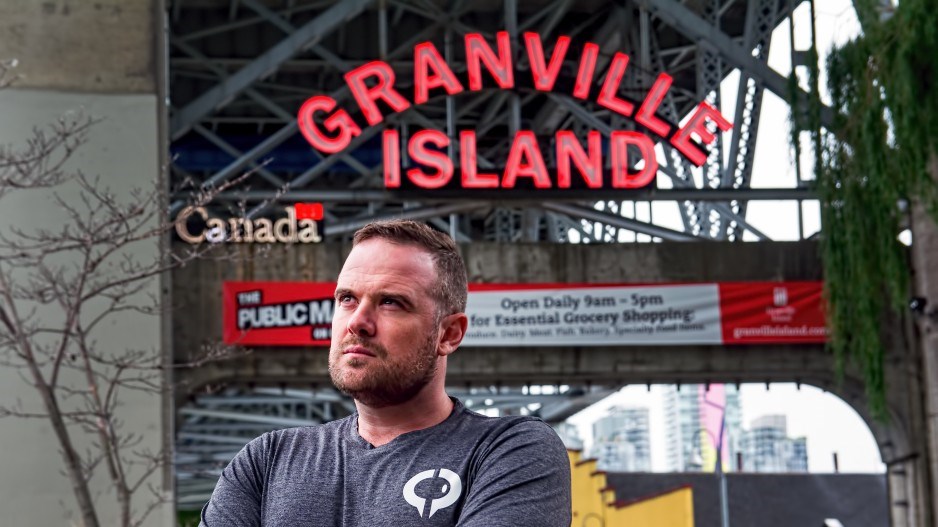Chris Heard thought himself fortunate when his tech startup landed an office lease last year in downtown Vancouver for $620 a month.
The owner of the floor was eager to lease immediately but the six desks and shared boardroom came with the understanding renegotiations would come in 12 months.
“Then obviously COVID happened — perfect timing for us to renew our contract where it was supposed to almost double in price,” said the CEO of Olive Technologies Inc.
“We just said that we can’t [renew], it’s been empty for two months. So they said, ‘Go for it, you can have it for another 12 months.’”
That’s at least one battle won for Olive as it seeks to expand following a beta launch last year.
Launching a startup in pre-pandemic times is already considered backbreaking, as anything from bad timing to a misread on the market can cause hard work and a fantastic idea to collapse without warning.
Heard said launching within the constraints of COVID-19 has thrown everything for a loop.
But it hasn’t all been to the detriment of the startup that specializes in streamlining decision-making for IT products and services, reducing companies’ costs as well as reliance on outside consultants.
“The pandemic has some benefit to our message in the short term,” Heard said, referring to the need to reduce technology costs as throngs of firms transition to remote working.
“A lot of companies were really caught flat-footed and ended up making purchases really rapidly.”
It’s that message he’s been trying to get across to new customers and investors, albeit not through typical means such as in-person meetings or lead generations at conferences.
“I’ve got mad Zoom fatigue. I mean, I was meeting five or six investors a day for a few weeks there,” Heard said.
“Because the fact that it’s on video, I think a lot of investors are cautious and want extra meetings.”
Olive is in the midst of fundraising and Heard encountered one potential investor wary of investing $5 million over Zoom.
When the investor was told Olive was in fact looking to raise $1-2 million, the tune changed.
“Which I thought was hilarious to hear we can do $2 million over Zoom. It’s definitely a different experience and a lot more work,” Heard said.
Access to funding for startups will continue to be difficult in the short term, according to B.C. Tech Association CEO Jill Tipping.
“If you were lucky enough to raise money in February, then you’re doing well. If you were hoping to raise money in May, then you’re challenged. There’s just an element of luck there,” she said, adding the pandemic seems to be serving as an accelerator for everything that was already true about the tech sector.
“In the case of a startup starting to launch: It’s go out there, and get in front of your customer, and sell your product and find out whether it meets its needs, and if not, pivot and adapt.”
A tiny bit of upheaval was necessary for Olive, which was originally focused on offering services to large restaurant chains.
North Vancouver-based A&W Food Services of Canada was one of the startup’s most high-profile clients but with so many restaurants shuttering its doors or else only slowly reopening, Heard said Olive is now reaching out to a broader range of potential customers such as utility companies and construction firms.
Olive was also among a cohort of companies accepted into the Techstars Seattle accelerator in February.
Among those accepted was a startup focused on connecting coffee roasters with farmers, while another specialized in offering cleaning services to Airbnb Inc. rentals.
With activity at coffee shops ground to a halt, and travel and the holiday season still very uncertain, Heard said both those companies ended up getting slammed by the pandemic.
Olive, meanwhile, has been able to tap government initiatives such as the National Research Council Industrial Research Assistance Program (better known as IRAP) as well as the $40,000 loan from the Canada Emergency Business Account, $10,000 of which is forgivable.
But the Canada Emergency Wage Subsidy has gone untouched by Olive — not an unfamiliar story.
The 75% wage subsidy, which has faced criticisms for onerous requirements from applicants, has so far attracted 327,690 applications as of June 1.
The government had anticipated 1 million applications.
“If our business was completely done over by COVID, we would [apply],” Heard said.
“I just know there are a lot of companies struggling harder than us.”




